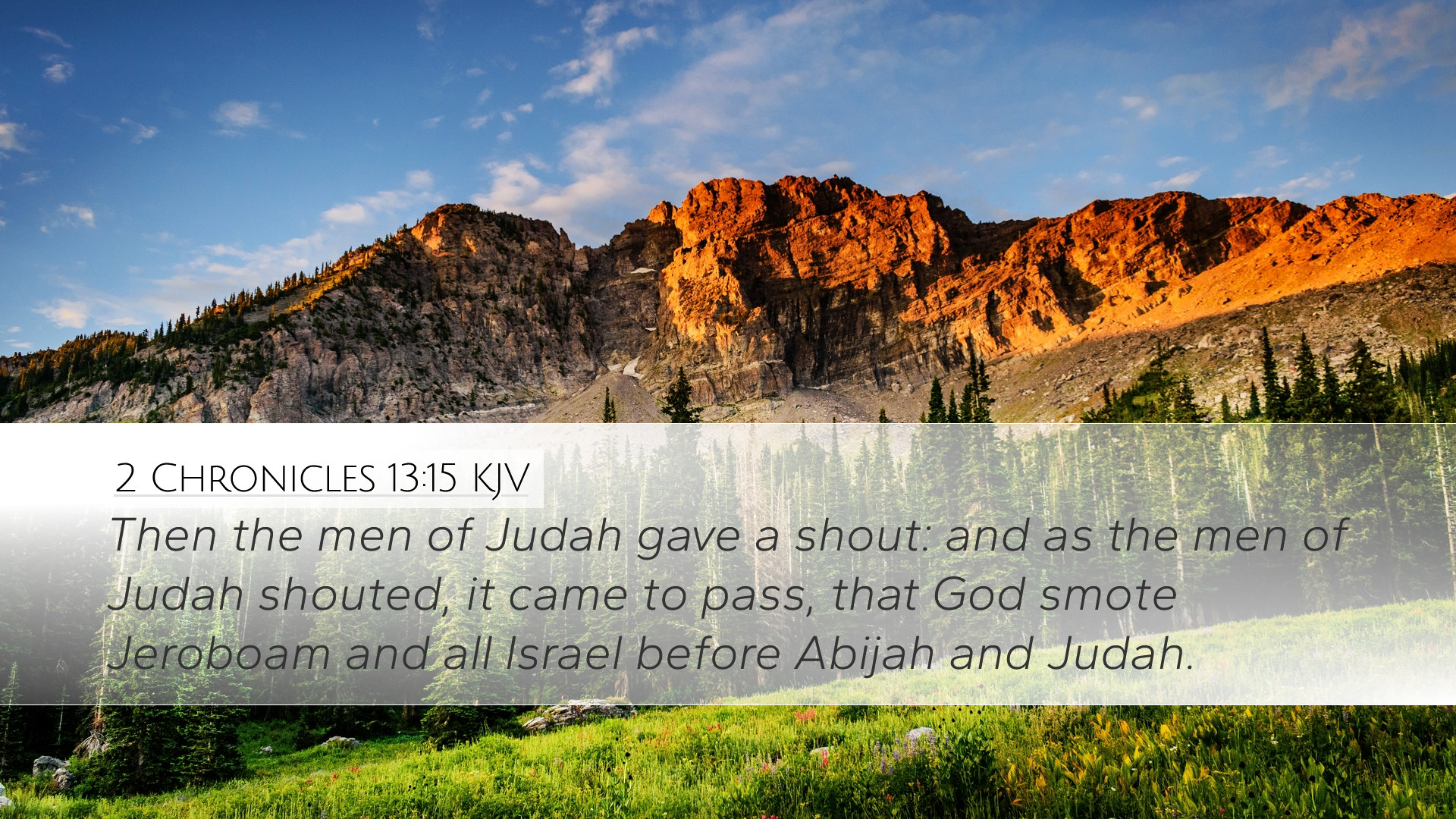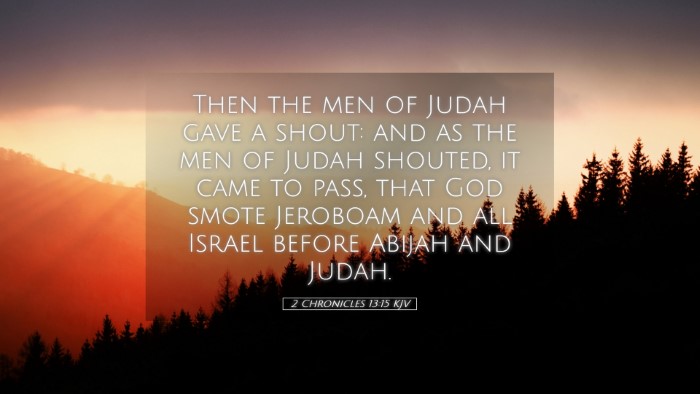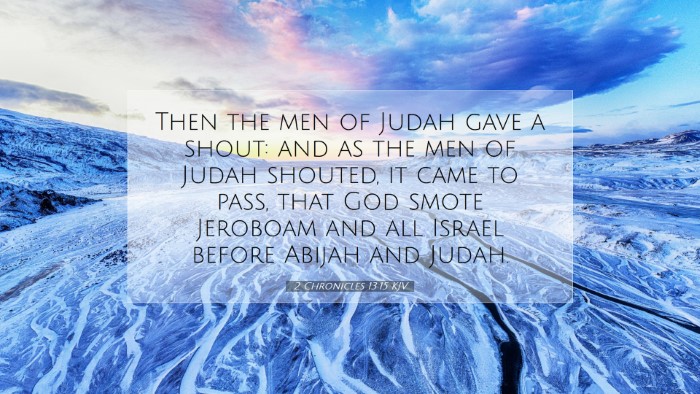Commentary on 2 Chronicles 13:15
Verse: "Then the men of Judah gave a shout: and as the men of Judah shouted, it came to pass, that God smote Jeroboam and all Israel before Abijah and Judah."
Introduction
This verse encapsulates a significant moment in the history of Judah and Israel, highlighting the themes of divine intervention, the power of faith, and the importance of leadership. The context of the verse takes place during a tumultuous period in the divided monarchy of Israel.
Contextual Analysis
The backdrop of this passage is the conflict between the house of Judah, led by King Abijah, and the house of Israel, led by King Jeroboam. This skirmish is pivotal as it illustrates the larger struggle for supremacy within the nation—the division between the northern and southern kingdoms.
Historical Setting
After the reign of Solomon, the kingdom of Israel was divided. Jeroboam, having established his rule over the northern tribes, was at odds with Abijah, the reigning king of Judah. The narrative in 2 Chronicles presents Abijah as a righteous king standing against the backdrop of idolatry and rebellion represented by Jeroboam.
Analysis of Key Themes
-
Divine Intervention
Albert Barnes emphasizes the importance of God's intervention in battles. The mention of God smiting Jeroboam illustrates that, despite the odds being stacked against Abijah, divine assistance was crucial in the victory of Judah. God's sovereignty and power are paramount, showcasing that victory comes not from man’s might but from God’s will.
-
The Power of Faith
Matthew Henry highlights the significance of the shout of the men of Judah as an expression of faith. Their cry signifies trust in God’s promises, indicating that worship and reliance on God can lead to triumph. This act of shouting can be seen as a rallying cry that ignites courage among the people and serves as a reminder of God's past faithfulness.
-
Leadership and Obedience
Abijah’s leadership is instrumental in this account. Adam Clarke remarks on his bravery in confronting Jeroboam and calling upon God for support. The verse illustrates the importance of godly leadership that directs the people towards reliance on God, contrasting sharply with the disobedience and idolatry shown by Jeroboam and Israel.
Theological Implications
The theological implications of this verse can be profound. It serves as a reminder of the importance of faithfulness to God and His commandments. In times of adversity, believers are called to trust in God’s supremacy. Jeroboam’s defeat is a testament to God’s justice—those who rebel against His covenant ultimately face consequences.
The Shout of Judah
The shout of the men of Judah represents more than mere battle cries; it symbolizes unity, resolve, and faith in God’s promised deliverance. As emphasized by Henry, this collective act of faith is instrumental. It is a vivid illustration of how community worship can fortify believers against overwhelming odds.
Jeroboam's Downfall
Jeroboam's downfall is not purely a military loss but serves as a significant theological lesson. It reflects the futility of opposing God's chosen leaders and the consequences of leading others into sin. Barnes points out that Jeroboam’s actions—leading Israel into idolatry—provoked God’s judgment, showcasing the spiritual ramifications of leadership.
Practical Applications
-
Faith in Crisis
This passage encourages Christians to maintain faith during crises. In the face of challenges, congregations are reminded that God fights on behalf of His people when they call on Him sincerely.
-
The Role of Collective Worship
The incident highlights the importance of collective worship and shared faith. Pastors and church leaders can draw from this verse to encourage congregational unity and active participation in worship as a source of strength.
-
Leadership Accountability
The contrasting leadership styles between Abijah and Jeroboam offer a framework for evaluating modern leadership within church contexts. Leaders are urged to lead their people in faithfulness to God and be wary of the consequences that disobedience might bring.
Conclusion
In summary, 2 Chronicles 13:15 serves not just as a historical account but a rich source of theological reflection. The interplay of faith, divine intervention, and the importance of leadership encapsulates the essence of trust in God amidst conflict. For pastors, theologians, and scholars, this verse is a reminder of the eternal truths found in the Scriptures, where God remains sovereign, and faithful leaders can lead their people to victory against overwhelming odds.


